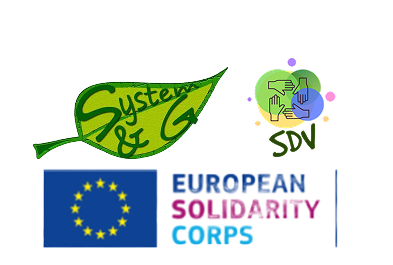Ecuador
Long-Term
26 August 2025 – 21 February 2026 (4 Volunteers)
Months 1–2: Environmental Education and Community Outreach
Objective: Raise environmental awareness among schoolchildren, educators, and families.
Activities:
✓ Organise workshops on recycling, composting, and native species.
✓ Launch small-scale community gardens to promote sustainable farming.
Expected Results: Increased environmental knowledge and functional educational gardens.
Months 3–4: Reforestation and Waste Management Initiatives
Objective: Restore local ecosystems and enhance waste reduction capacity.
Activities:
✓ Organise tree-planting events with local partners.
✓ Enhance recycling infrastructure and offer waste-sorting education.
✓ Expected Results: Enhanced green spaces and improved community waste management.
Months 5–6: Impact Assessment and Promotion of Sustainable Practices
Objective: Measure project impact and promote long-term sustainability.
Activities:
✓ Conduct surveys to assess environmental awareness and behaviours.
✓ Compile a sustainability guide with lessons learned.
✓ Engage in policy dialogues and pilot projects with local authorities.
Expected Results: Clear evaluation of outcomes and a roadmap for future improvements.
26 August 2025 – 21 February 2026 (4 Volunteers)
Months 1–2: Environmental Education and Community Outreach
Objective: Raise environmental awareness among schoolchildren, educators, and families.
Activities:
✓ Organise workshops on recycling, composting, and native species.
✓ Launch small-scale community gardens to promote sustainable farming.
Expected Results: Increased environmental knowledge and functional educational gardens.
Months 3–4: Reforestation and Waste Management Initiatives
Objective: Restore local ecosystems and enhance waste reduction capacity.
Activities:
✓ Organise tree-planting events with local partners.
✓ Enhance recycling infrastructure and offer waste-sorting education.
✓ Expected Results: Enhanced green spaces and improved community waste management.
Months 5–6: Impact Assessment and Promotion of Sustainable Practices
Objective: Measure project impact and promote long-term sustainability.
Activities:
✓ Conduct surveys to assess environmental awareness and behaviours.
✓ Compile a sustainability guide with lessons learned.
✓ Engage in policy dialogues and pilot projects with local authorities.
Expected Results: Clear evaluation of outcomes and a roadmap for future improvements.
Short-Term
23 January – 21 February 2026 (20 Volunteers)
Objective: Rapidly scale and reinforce key project initiatives.
Activities:
Expected Results: Increased community involvement, particularly among young people, and improved adoption of sustainable practices.
23 January – 21 February 2026 (20 Volunteers)
Objective: Rapidly scale and reinforce key project initiatives.
Activities:
- Expand recycling efforts by establishing new collection points and implementing awareness campaigns.
- Organise reforestation days in key locations with community engagement.
- Promote success stories via local media and social channels.
Expected Results: Increased community involvement, particularly among young people, and improved adoption of sustainable practices.
Location: Pomasqui
Themes:
Environmental justice, waste management, community development
Themes:
Environmental justice, waste management, community development



Ecuador
Long-Term
26 August 2025 – 21 February 2026
4 Volunteers
Months 1–2: Environmental Education and Community Outreach
Objective: Raise environmental awareness among schoolchildren, educators, and families.
Activities:
✓ Organise workshops on recycling, composting, and native species.
✓ Launch small-scale community gardens to promote sustainable farming.
Expected Results: Increased environmental knowledge and functional educational gardens.
Months 3–4: Reforestation and Waste Management Initiatives
Objective: Restore local ecosystems and enhance waste reduction capacity.
Activities:
✓ Organise tree-planting events with local partners.
✓ Enhance recycling infrastructure and offer waste-sorting education.
✓ Expected Results: Enhanced green spaces and improved community waste management.
Months 5–6: Impact Assessment and Promotion of Sustainable Practices
Objective: Measure project impact and promote long-term sustainability.
Activities:
✓ Conduct surveys to assess environmental awareness and behaviours.
✓ Compile a sustainability guide with lessons learned.
✓ Engage in policy dialogues and pilot projects with local authorities.
Expected Results: Clear evaluation of outcomes and a roadmap for future improvements.
26 August 2025 – 21 February 2026
4 Volunteers
Months 1–2: Environmental Education and Community Outreach
Objective: Raise environmental awareness among schoolchildren, educators, and families.
Activities:
✓ Organise workshops on recycling, composting, and native species.
✓ Launch small-scale community gardens to promote sustainable farming.
Expected Results: Increased environmental knowledge and functional educational gardens.
Months 3–4: Reforestation and Waste Management Initiatives
Objective: Restore local ecosystems and enhance waste reduction capacity.
Activities:
✓ Organise tree-planting events with local partners.
✓ Enhance recycling infrastructure and offer waste-sorting education.
✓ Expected Results: Enhanced green spaces and improved community waste management.
Months 5–6: Impact Assessment and Promotion of Sustainable Practices
Objective: Measure project impact and promote long-term sustainability.
Activities:
✓ Conduct surveys to assess environmental awareness and behaviours.
✓ Compile a sustainability guide with lessons learned.
✓ Engage in policy dialogues and pilot projects with local authorities.
Expected Results: Clear evaluation of outcomes and a roadmap for future improvements.
Short-Term
23 January – 21 February 2026,
20 Volunteers
Objective: Rapidly scale and reinforce key project initiatives.
Activities:
Expected Results: Increased community involvement, particularly among young people, and improved adoption of sustainable practices.
23 January – 21 February 2026,
20 Volunteers
Objective: Rapidly scale and reinforce key project initiatives.
Activities:
- Expand recycling efforts by establishing new collection points and implementing awareness campaigns.
- Organise reforestation days in key locations with community engagement.
- Promote success stories via local media and social channels.
Expected Results: Increased community involvement, particularly among young people, and improved adoption of sustainable practices.

Location: Pomasqui
Themes:
Themes:
Environmental justice,
waste management, community development


